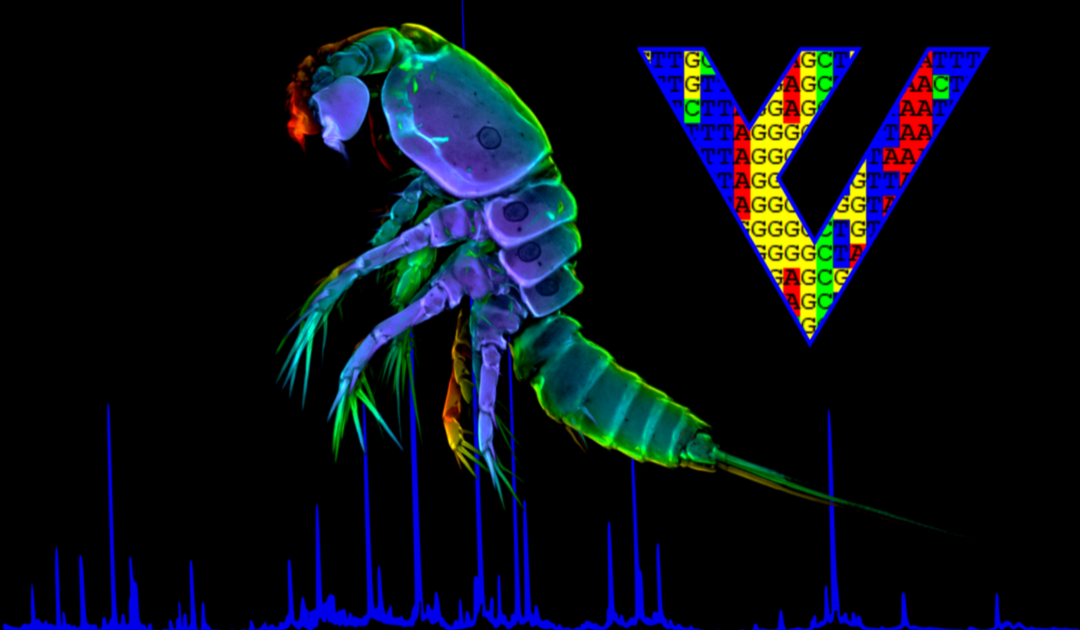2022
18. KÜRZEL, K., KAISER, S., LÖRZ, A.-N., ROSSEL, S., PAULUS, E., PETERS, J., SCHWENTNER, M., MARTÍNEZ ARBIZU, P., COLEMAN, C. O., SVAVARSSON, J., & BRIX, S. (2022). Correct Species Identification and Its Implications for Conservation Using Haploniscidae (Crustacea, Isopoda) in Icelandic Waters as a Proxy. Frontiers in Marine Science, 8(795196). https://doi.org/doi: 10.3389/fmars.2021.795196
17. ROSSEL, S., UHLENKOTT, K., PETERS, J., VINK, A., & MARTÍNEZ ARBIZU, P. (2022). Evaluating species richness using proteomic fingerprinting and DNA-barcoding – a case study on meiobenthic copepods from the Clarion Clipperton Fracture Zone. Marine Biodiversity.
16. KORFHAGE, S. A., ROSSEL, S., BRIX, S., MCFADDEN, C. S., ÓLAFSDÓTTIR, S. H., & MARTÍNEZ ARBIZU, P. (2022). Species Delimitation of Hexacorallia and Octocorallia Around Iceland Using Nuclear and Mitochondrial DNA and Proteome Fingerprinting. Frontiers in Marine Science, 9. https://www.frontiersin.org/article/10.3389/fmars.2022.838201
15. ROSSEL, S., KAISER, P., BODE-DALBY, M., RENZ, J., LAAKMANN, S., AUEL, H., HAGEN, W., MARTÍNEZ ARBIZU, P., & PETERS, J. (2022). Proteomic fingerprinting enables quantitative biodiversity assessments of species and ontogenetic stages in Calanus congeners (Copepoda, Crustacea) from the Arctic Ocean. Molecular Ecology Resources, n/a(n/a). https://doi.org/10.1111/1755-0998.13714
2021
14. RENZ, J., MARKHASEVA, E. L., LAAKMANN, S., ROSSEL, S., MARTÍNEZ ARBIZU, P., & PETERS, J. (2021). Proteomic fingerprinting facilitates biodiversity assessments in understudied ecosystems: A case study on integrated taxonomy of deep sea copepods. Molecular Ecology Resources. https://doi.org/10.1111/1755-0998.13405
13. PAULUS, E., BRIX, S., SIEBERT, A., MARTÍNEZ ARBIZU, P., ROSSEL, S., PETERS, J., SVAVARSSON, J., & SCHWENTNER, M. (2022). Recent speciation and hybridization in Icelandic deep-sea isopods: An integrative approach using genomics and proteomics. Molecular Ecology, 31(1), 313–330. https://doi.org/10.1111/mec.16234
2020
12. ROSSEL, S., & MARTÍNEZ ARBIZU, P. (2020). Unsupervised biodiversity estimation using proteomic fingerprints from MALDI-TOF MS data. Limnology and Oceanography: Methods. https://doi.org/10.1002/lom3.10358
11. ROSSEL, S., BARCO, A., KLOPPMANN, M., MARTÍNEZ ARBIZU, P., HUWER, B., & KNEBELSBERGER, T. (2020). Rapid species level identification of fish eggs by proteome fingerprinting using MALDI-TOF MS. Journal of Proteomics, 103993. https://doi.org/10.1016/j.jprot.2020.103993
10. PETERS, J., LAAKMANN, S., ROSSEL, S., MARTÍNEZ ARBIZU, P., & RENZ, J. (2022). Perspectives of species identification by MALDI-TOF MS in monitoring—Stability of proteomic fingerprints in marine epipelagic copepods [Preprint]. Preprints. https://doi.org/10.22541/au.166671183.32080869/v1
9. WILKE, T., RENZ, J., HAUFFE, T., DELICADO, D., & PETERS, J. (2020). Proteomic Fingerprinting Discriminates Cryptic Gastropod Species. Malacologia, 63(1), 131–137. https://doi.org/10.4002/040.063.0113
2019
8. HOLST, S., HEINS, A., AND LAAKMANN, S. (2019). Morphological and molecular diagnostic species characters of Staurozoa (Cnidaria) collected on the coast of Helgoland (German Bight, North Sea). Marine Biodiversity. doi:10.1007/s12526-019-00943-1.
7. ROSSEL, S., KHODAMI, S., AND MARTÍNEZ ARBIZU, P. (2019). Comparison of rapid biodiversity assessment of meiobenthos using MALDI-TOF MS and Metabarcoding. Frontiers in Marine Science 6, 659. doi: 10.3389/fmars.2019.00659
6. ROSSEL, S., AND MARTÍNEZ ARBIZU, P. (2019). Revealing higher than expected diversity of Harpacticoida (Crustacea: Copepoda) in the North Sea using MALDI-TOF MS and molecular barcoding. Scientific Reports 9, 9182. doi: 10.1038/s41598-019-45718-7
2018
5. ROSSEL, S., AND MARTÍNEZ ARBIZU, P. (2018). Effects of Sample Fixation on Specimen Identification in Biodiversity Assemblies based on Proteomic Data (MALDI-TOF). Frontiers in Marine Science 5, 149. doi: 10.3389/fmars.2018.00149
4. ROSSEL, S., AND MARTÍNEZ ARBIZU, P. (2018). Automatic specimen identification of Harpacticoids (Crustacea: Copepoda) using Random Forest and MALDI-TOF mass spectra, including a post hoc test for false positive discovery. Methods in Ecology and Evolution 00, 1–14. doi: 10.1111/2041-210X.13000
3. KAISER, P., BODE, M., CORNILS, A., HAGEN, W., MARTÍNEZ ARBIZU, P., AUEL, H., AND LAAKMANN, S. (2018). High-resolution community analysis of deep-sea copepods using MALDI-TOF protein fingerprinting. Deep Sea Research Part I: Oceanographic Research Papers. doi:10.1093/plankt/fbx031
2017
2. BODE, M., LAAKMANN, S., KAISER, P., HAGEN, W., AUEL, H., AND CORNILS, A. (2017). Unravelling diversity of deep-sea copepods using integrated morphological and molecular techniques. Journal of Plankton Research 39, 600–617. doi: 10.1016/j.dsr.2018.06.005
2013
1. LAAKMANN, S., GERDTS, G., ERLER, R., KNEBELSBERGER, T., MARTÍNEZ ARBIZU, P., AND RAUPACH, M. J. (2013). Comparison of molecular species identification for North Sea calanoid copepods (Crustacea) using proteome fingerprints and DNA sequences. Mol Ecol Resour 13, 862–76. doi:10.1111/1755-0998.12139.

